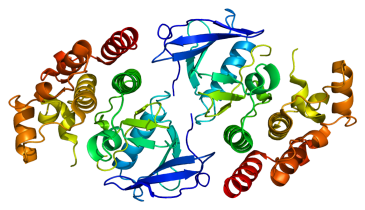Genolife researchers report on a new test based on methods of personalized medicine and genomic medicine for the diagnosis of prostate cancer.
In Mexico, approximately 2 in 10 men develop prostate cancer and approximately 5,500 succumb to the disease each year. The diagnosis of prostate cancer can be made through the blood test for prostate-specific antigen (PSA); This PSA test, however, is not completely reliable.
Although PSA is not an ideal marker, it remains the most widely used diagnostic biomarker. And it has led to the increase of biopsies practiced, however; This has not resulted in an increase in the number of cases of prostate cancer diagnosed but has led to the realization of a large number of unnecessary biopsies.
The PSA test fails in reliability since a high level of PSA does not necessarily indicate an increased risk of developing prostate cancer. Currently, if PSA levels are high, the patient undergoes aggressive therapy, which can result in side effects such as erectile dysfunction or incontinence. To avoid this phenomenon of “overtherapy”, Genolife has a test together the methods of personalized medicine and genomic medicine, that is, the personalization of the health system (treatment, decision making, etc.) focuses on the individual patient .
To avoid unnecessary treatment and at the same time to control the development of tumors, our recommendation states that a patient who is young in age or who has slightly increased PSA levels should only be monitored through this marker. But if the PSA values are so high that clinicians consider a biopsy to be relevant, the test is repeated within twelve weeks along with other biomarkers (PCA3, TMPRSS-2 and hKLK2), in addition to PSA is evaluated and applies mathematical models, before making a decision.
In addition to the PSA test, new molecular methods are used to create a complete biological profile of the cells. This allows us to make an accurate risk assessment, locate the tumor accurately and determine its molecular structure. We also use special calculation models in the formulation of a forecast.
On the basis of this new molecular test, unnecessary treatments and subsequent side effects are avoided and physicians can make a more informed decision about the treatment and estimate the patient’s response to surgical or drug-based therapy.
In case molecular diagnosis recommends surgery, Genolife strongly recommends that it be performed in a specialized hospital with experience in this type of medical procedure. Since having the additional information provided by the molecular methods is much more likely to find a positive biopsy and have to make therapeutic decisions.


